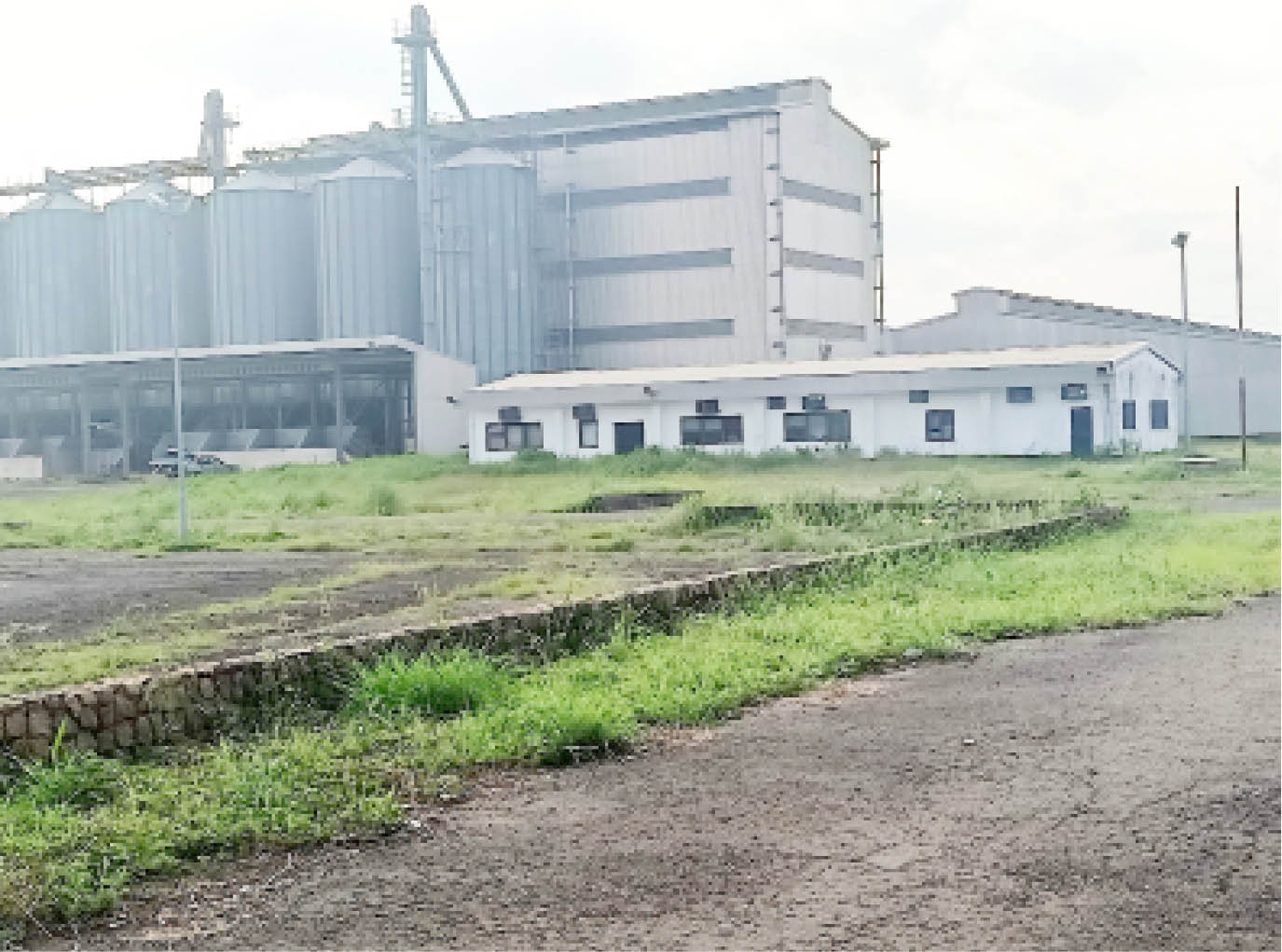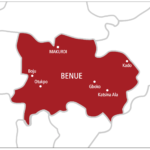A fortnight ago, Governor Samuel Ortom of Benue State put up 25 companies belonging to the state for sale, saying the decision became necessary as they were wasting away. Daily Trust took a look at some of the moribund companies and now reports.
Penultimate Monday, the Benue State Government advertised the sale of its 25 moribund companies in a national daily, a development that stirred up criticism among the people.
- Health officers seek collaboration with NCDC to tackle Cholera, other diseases
- A year after: Life isn’t that rosy for Kwara blue-eyed woman, husband
Some of the companies put up for sale or concessioning are Otukpo Burnt Bricks; the Benue Cement Company (BCC); the Taraku Oil Mills; Mega Foods and Beverages Company; Benfriut Nigeria Limited; Benkims Plastic Nigeria Limited; Agricultural Development Company; Fertiliser Blending Company; Benue Roof Tiles Limited; Wannune Tomato Company; Mango Juice plant and the Katsina/Ala Yam factory.
Others are Benue Fertiliser Blending Plant, Benue Plastic Industry, Benue Links Transport Ltd; Benue Hotel Ltd, Star Cement, Igumale; Benue Printing and Publishing Company; Benue Cattle Ranch Ltd, Ikyogen; JS Tarka Foundation; Makurdi International Hotel; Ikwe Wildlife Park, Igbor; Benue Pharmaceutical, Makurdi and Mbatiav Cement Company Ltd.
Governor Ortom, however, said the decision to sell the property was the best since the private sector does better in driving the economy. He said there was the need to clear the erroneous impression created by reactions trailing the planned sale of the companies.

“None of those companies listed for sale are working; rather, they are draining public funds. Most of the equipment are obsolete and wasting away. It is out of mischief that they (opposition) are saying I want to buy some of the companies,” the governor said.
He said the decision to sell the property was in line with the state’s privatisation law established in 2010, adding that most of the companies put up for sale had not worked for a day. He emphasized that only two – the fertiliser plant and plastic industry, which were concessioned – had been operational.
Daily Trust learnt that one of the now moribund companies, Taraku Oil Mills, had employed over 600 workers, out of which 377 were laid off in mass retrenchment in 2009.
Our correspondent who visited the mill observed that the premises was locked up, but the gate was slightly open to ease the movement of few security men. When the security men were approached at their duty post, they declined any form of conversation.
It was also observed that the about 1kilometre road leading to the mill had been overtaken by women of the host community, who now use the driveway to spread fermented cassava for flakes and other byproducts.
Some of them who spoke without mentioning their names said the closure of the company brought hardship to their families and Taraku community.
A parent whose three children are graduates but yet to find sustainable jobs, lamented the moribund state of major projects in the state, which he said could have engaged jobless youths if they were revived and put to use. He regretted that the industrial sector of the state had collapsed, and recalled when Benue was an industrial destination in the early 1980s and 1990s.
One of the women who spoke with our correspondent said, “This area was a beehive of activities. Apart from the production of sesame (beniseed), groundnut and maize, which we supplied to the factory to earn income, we also engaged in petty businesses that enhanced our livelihood. Our community could also boast of more revenue and better social life.”
A beniseed farmer in the community who simply identified himself as Eddy said life was better for him and people of the community in the glorious days of Taraku Mills as, apart from farming activities, commercial and social life was at its peak.
Eddy added, “Farmers in this community could not meet the needs of the factory, so contractors came from all over the places to supply beniseed and maize to the mill. They were paid. This area was a beehive of activities and everyone was happy.”
Daily Trust learnt that the mill was originally intended to produce vegetable and groundnut oils, maize flour, cake, maize grit, livestock feeds, concentrate and diet mix, soya, corn oil, sunflower oil, benolina, benofeeds, soya meals and benogrits.

Sadly, the company ended production in 2013. It was first shut down during the administration of George Akume.
Grace Alfa, who was a supplier of soybeans to the factory between 2001 and 2003 said, “Sometimes when we couldn’t get products from farmers around Benue, we went as far as Jigawa, Kano and Bauchi states to source for raw materials for the factory. And we got well paid.
“But that is now in the past. Many people, including me, have suffered because of the collapse of the company. The entire factory area was a beehive of commercial activities, and the locals were gainfully self-employed.”
It was also learnt that successive administrations in the state continued to promise that the companies would soon set the pace for the industrial development of the country but to no avail.
Several efforts were reportedly made to revitalise Taraku Mills; hence it was leased to Growrich Nigeria Limited in 2013 at the sum of N300million. Following this action, production was done at a small scale in 2016.
It was first leased to Yelwata Trading Company in 2008 by the Gabriel Suswam government. However, the contract terminated in June 2009 after it was discovered that the company lacked financial competence to manage it.
Since it came on board in 2015, the administration of Governor Ortom had also evolved strategies that are, however, yet to breathe life into the mill, which was established in 1982 with a capital of $100million, alongside other industries.
All the machineries in Taraku Mills, as findings indicated, were installed between 1986 and 1987 while it became fully operational in 1989, producing the finest edible oil.
Sadly, the mill, which was originally intended to add value to agricultural production in the agrarian state, started wobbling at the wake of the year 2000.
The Commissioner for Industries and Cooperatives in the state, Merga Kachina, a lawyer, told our correspondent in Makurdi that currently, “Taraku Mills has completely failed and has no capacity to function. It was leased out earlier, but the person didn’t have the capacity to operate it,” he added.
Kachina also said that in a bid to revive the company, the state government decided to look for private investors to partner with.
It would be recalled that at the inception of his administration in 2015, Governor Ortom assured that he would do anything possible to revive the moribund companies, saying they were under an evil spell. He also lamented their level of decay.

“This is my first time of coming into the oil mill, and from what we have seen, Benue is under a spell. There is no reason for this factory to be lying fallow. It is a goldmine, greater than Benue Cement. The raw materials are here; and when the factory starts working, farmers, our mothers and the youth will smile,” he had said during a visit to the company.
While paying tribute to the late governor of the state, Aper Aku, who had the foresight to establish the factory, Ortom said he would build on the legacies left behind.
He, therefore, directed that water supply from the Otobi waterworks in Otukpo, a near distance to the plant, should be immediately extended to the factory to solve part of its production challenges
To this end, the managing director and chief executive officer of Growrich Resorts Limited, Ernest Jor, told the governor that when operational, the factory would have the capacity to provide over 600 jobs and create massive wealth for Benue farmers,
Jor said that the company lacked water, power supply, as well as sufficient funds to maintain uninterrupted production, and appealed for approval to construct an earth dam to address the water challenge. He added that the company had the capacity to produce 72, 000 tons of soybeans, 120, 000 tons of maize and 172,300 tons of animal feeds annually. But the investor’s dream never came to fruition.
In April 2018, the state government considered privatising the mill but rescinded its decision after public outcry.
The then Commissioner for Industry, Trade and Investment, Professor Tersoo Kpelai, explained that the decision to privatise 11 of the state-owned companies, including Taraku Mill, was for the betterment of indigenes.
He said, “Privatisation has become the only option since the government currently has developmental challenges with slim resources. Privatising these enterprises will bring efficiency and effective performance as investors will bring in capital, new technology, skills and better management expertise, among other things that will make these enterprises more profitable.
“Let me say that the present administration’s commitment is to revive our moribund industries, create enabling business environment, help Benue people to imbibe enterprise values, starting vibrant small and medium enterprises across the state. This will ignite a private sector-driven development that will usher in unprecedented economic prosperity.”
Speaking on the need to revive the companies in 2020, the managing director of Benue State Investment and Property Company (BIPC), Alex Adum said,
“Our determination is to find a way to retool industrial assets in Benue. That is why we are in discussion with investors. For instance, we are starting with the Otukpo Burnt Bricks, which we want to bring back into production, then we will move to the Wannune Tomato and Mango Juice Plant and the Katsina/Ala yam factory.
“Our hope is that by the time the BIPC is strong, in terms of capacity, we should be able to serve as engine room for industrial reawakening or revival of the Benue valley. Without industries, a large part of our agricultural produce is wasted because when you sell raw agricultural products and produce, you won’t get the best benefits.
“But if you are processing, it means you are taking it to the end of the value chain. So our agriculture will become a lot more meaningful,” he said.
He recalled that Benue State was an industrial destination in early 1980 and 1990, saying, “We had the Benue Cement Company (BCC), Taraku Oil Mills, Benue Breweries and several other industries, which were thriving.”
Unfortunately, today, Benue is classified as a civil service state, which means that no other business thrives.
“We need to revive these companies so that we can take pressure away from government and create an alternative economy for our people. This is because, as it is at the moment in Benue, everybody is looking for white-collar jobs.
“If our industries are working we will be able to create wealth, and when we generate wealth by creating new business activities, we will also be able to increase our internally generated revenue because workers will be employed.
“From the business taxes the Benue Internal Revenue Service will raise, government’s income will also expand. So our desire is to see that the industrial opportunities of Benue are back to work,” Adum said.
It would also be recalled that in 2012, the then Commissioner for Commerce and Industry, Terfa Atoza Ihinda, who was shouldered with the responsibility to resurrect all the affected industries, disclosed at a press briefing in Makurdi that, “The emphasis of government as at now is to privatise state-owned industries. Where we can sell, we will do so. My vision in this office is to ensure that all the industries work at all cost since the state cannot run them.
“The moribund industries in the state would start working before the end of this administration. This would be possible as it would assume private concern.”
Few days ago, Governor Ortom reiterated that the recently reconstituted and inaugurated Benue State Council on Privatisation and Commercialisation of Enterprises would go ahead to rejuvenate the moribund industries in the state.


